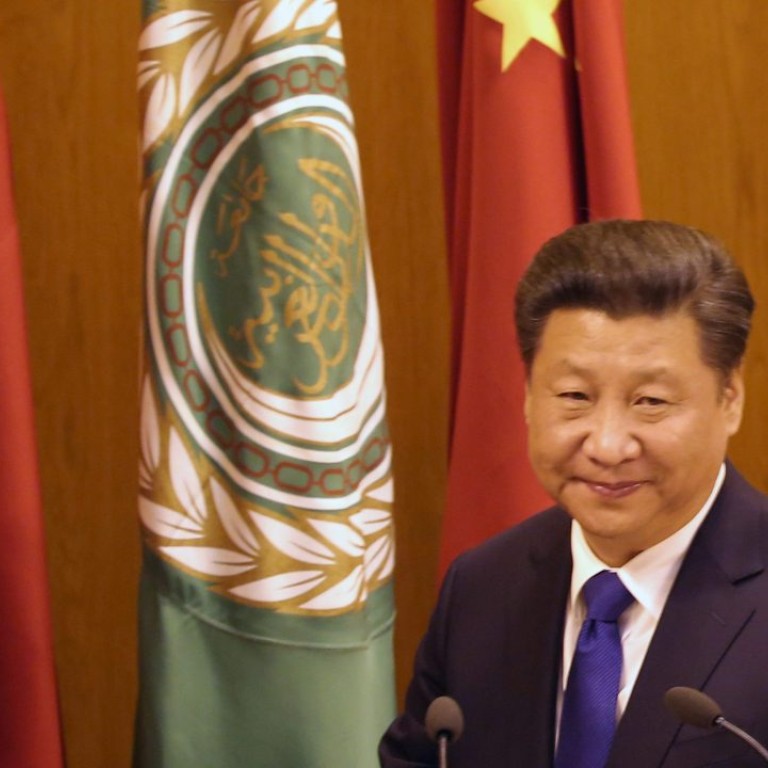
Chinese President Xi Jinping pushes trade over politics in Middle East
President Xi Jinping (習近平) is due to arrive in Iran today after outlining China’s policy in the Arab world as Beijing pursues a bigger diplomatic presence in the region.
Xi delivered a speech at the headquarters of the Arab League in Cairo, which groups 22 Arabic nations, on Thursday after a stop in Saudi Arabia.
He said China would set up a US$20 billion common investment fund with the United Arab Emirates and Qatar, and pledged 230 million yuan (HK$273.4 million) in humanitarian aid for Syria, Jordan, Lebanon, Libya, and Yemen. Beijing would also give US$300 million to boost China-Arab law enforcement cooperation, Xinhua reported.
Xi said development was the solution to easing unrest in the Middle East, and China did not seek to foster proxies or build a sphere of influence in the region.
READ MORE: China, Saudi Arabia upgrade diplomatic ties as Riyadh seeks new allies
During his stay in Cairo, Xi said China and the Arab world would together map their own path to development, defend peace in the region, promote mutually beneficial cooperation and advocate multiculturalism.
Mainland diplomatic observers said China was positioning itself as a key player in the Middle East using its economic muscle.
China’s Foreign Ministry last week issued the nation’s first policy paper on developing ties with the Arab region, stressing that Beijing would place energy cooperation at the core, push forward infrastructure construction and facilitate trade and investment. It would also pursue breakthroughs in technologies in nuclear energy, space-based communications and new energy.
Li Guofu, a Middle East affairs expert said China was attempting to show it would be a “practical” player in the region through infrastructure projects. Wang Wen, a researcher from the Chongyang Institute for Financial Studies at Renmin University, said “assisting local economic growth through infrastructure development and trade is what China is good at” and also something that locals “would not reject”.
After massive economic deals signed in Saudi Arabia, Xi told Egyptian President Abdel Fattah el-Sisi that China was willing to participate in Egypt’s key projects like the development of the Suez Canal Corridor and the construction of a new administrative capital.
These two projects were central to Sisi’s plans to stimulate Egypt’s economy, in which Chinese investment and participation would be crucial, Li said.
The Suez Canal project, which adds a 35km second shipping lane to the existing 164km passageway, was completed last year to ease ship traffic between the Mediterranean and the Red Sea.
READ MORE: Xi Jinping to walk fine line on Middle East visit
Li said the largest challenge facing Sisi’s administration was improving his people’s livelihood.
“It is where China’s ‘One Belt, One Road’ development plan comes in,” Li said.
In Saudi Arabia, Xi vowed to speed up free-trade talks with the region, and signalled support for Yemen’s Saudi-backed government, which is fighting the Iran-allied Houthi militia.
Beijing will be closely watched on how it strikes a balance between Riyadh and Tehran, which recently severed diplomatic ties after Saudi Arabia executed a Shiite cleric. Wang said China was expected to sign lucrative deals with Iran as well, and would refrain from getting deeply involved in the disputes between Riyadh and Tehran.

